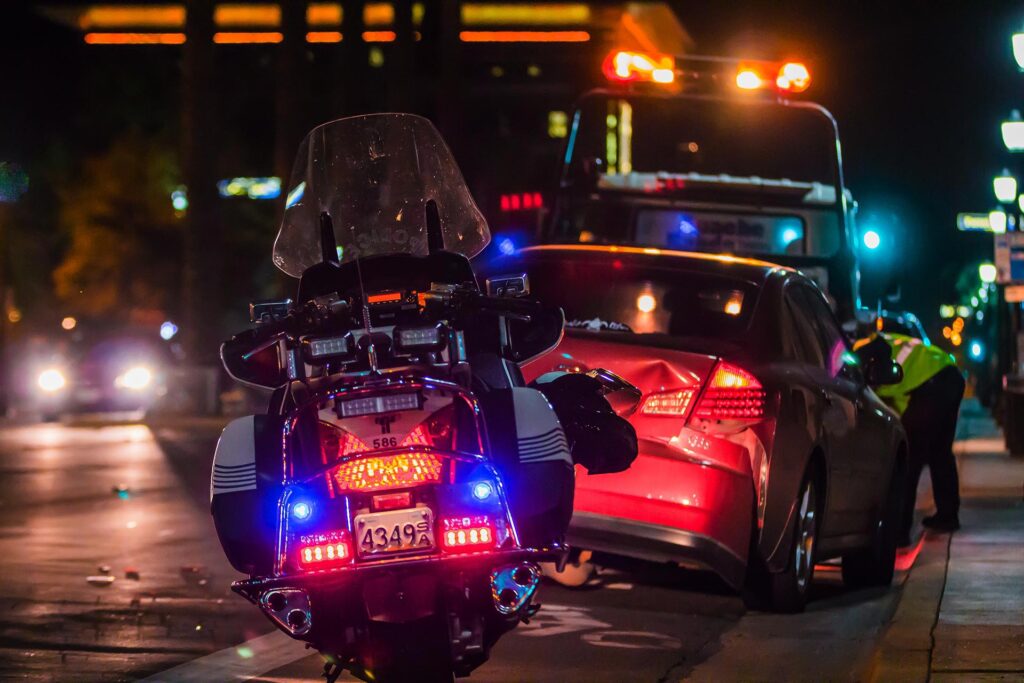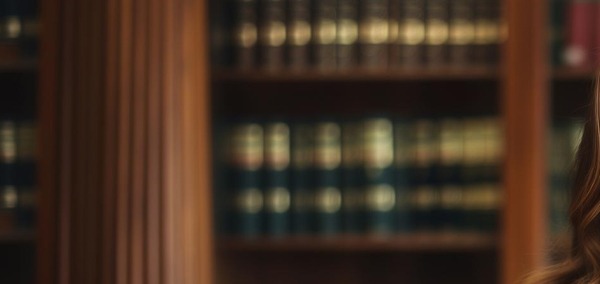Mistakes in a police report after a car accident can jeopardize your insurance claim, settlement, or even your ability to prove fault. Whether it’s a factual error or missing details, these inaccuracies can feel overwhelming when you’re already dealing with the aftermath of a crash.
In Las Vegas, where accidents are frequent, ensuring your police report is accurate is critical. The clock is ticking, and correcting mistakes requires quick action. With over 40 years of experience, Jack Bernstein and his team understand the urgency and complexity of these situations. You don’t have to handle this alone—there’s help available to protect your rights and your claim.
What Types of Police Report Errors Can Be Corrected
Not all errors in a police report are created equal. While some inaccuracies can be corrected with proper documentation, others—like subjective conclusions—may require more effort or even legal intervention. Knowing which types of errors are correctable can save you time and frustration.
Factual Errors
These are objective mistakes that can be verified with clear evidence. Factual errors are often the easiest to correct and include:
- Incorrect dates or times.
- Wrong location details (e.g., street name or intersection).
- Mismatched vehicle descriptions (e.g., make, model, color, or license plate).
- Errors in weather or road conditions.
Example: If the report lists the accident as occurring on “Main Street” but it actually happened on “Maple Avenue,” this is a factual error that can be fixed by providing supporting evidence such as photos or witness statements.
Documentation Errors
These errors involve incorrect or incomplete information about the people or vehicles involved in the accident, such as:
- Wrong driver or passenger details (e.g., name, contact information, or insurance provider).
- Missing or incorrect insurance policy numbers.
- Mislabeled roles (e.g., identifying a passenger as a driver).
Such errors can delay claim processing, as insurers often verify these details before approving a payout.
Missing Information
Sometimes, a police report leaves out critical details altogether. Missing information can include:
- Witness statements.
- Specific observations (e.g., skid marks or vehicle damage).
- Diagrams of the accident scene.
Adding missing information may require supplemental statements or additional evidence, but it’s vital to ensure your case is fully documented.
Subjective Conclusions
Errors in the officer’s interpretation of events, like assigning fault or describing driver behavior, are the most challenging to address. These are subjective opinions rather than factual inaccuracies.
Important Note: While it may be difficult to amend subjective conclusions, presenting evidence—such as dashcam footage or expert testimony—can challenge these assertions if they unfairly harm your case.
Deadlines and Steps for Correcting a Police Report in Las Vegas
Correcting a police report in Las Vegas requires prompt action. Delays can complicate your claim, as insurance companies and legal processes often rely on the report’s initial version. Understanding the timeframes and steps involved is critical.
Deadlines for Corrections
- LVMPD Guidelines: The Las Vegas Metropolitan Police Department (LVMPD) typically allows corrections to factual errors within a reasonable timeframe, often around 30 days (but confirm with the LVMPD) the report is issued.
- Insurance Reporting Deadlines: Insurers may require updated reports to process claims, and their deadlines can range from days to weeks after the accident.
- Legal Implications: Missing deadlines to correct errors could weaken your claim, especially if the inaccuracies influence liability determinations.
Step-by-Step Correction Process
- Identify the Error:
- Review the police report carefully for inaccuracies or missing information.
- Note specific details needing correction (e.g., incorrect vehicle make or missing witness names).
- Gather Supporting Evidence:
- Provide proof of the error, such as photos, insurance documents, or witness statements.
- Use objective evidence whenever possible to support your case.
- Contact the Relevant Department:
- For LVMPD reports, reach out to the Records Bureau to initiate corrections.
- Confirm submission requirements, such as forms or fees, by visiting the LVMPD website or calling their office.
- Submit Your Request:
- Complete any necessary forms and attach your evidence.
- Pay applicable fees, if required.
- Follow Up:
- Keep a record of your submission and follow up to ensure the correction is made.
- Request a revised copy of the report once updates are processed.
Correcting a police report in Las Vegas can be straightforward for factual errors but more challenging for subjective conclusions. By acting quickly and providing thorough documentation, you can ensure that your report accurately reflects the events of the accident, protecting your claim and your rights.
Protecting Your Rights During the Correction Process
Disputing a police report isn’t just about correcting errors—it’s about safeguarding your rights and ensuring your claim remains strong. Insurance companies and other involved parties may take advantage of inaccuracies to dispute liability or minimize payouts. Protecting yourself requires careful documentation, effective communication, and attention to detail.
Document Everything
Your ability to correct a police report or challenge its conclusions depends heavily on the evidence you can provide. Comprehensive documentation ensures you have the necessary proof to back up your claims. Key items to record include:
- Communication Logs:
- Keep a detailed record of all interactions with the police department, insurance companies, and any other parties.
- Include dates, names, and summaries of discussions.
- Evidence of Errors:
- Compile photos, video footage (e.g., dashcam recordings), and written statements from witnesses.
- Ensure all documentation highlights the specific inaccuracies or omissions in the police report.
- Supplemental Statements:
- Draft a clear and concise account of what the police report missed or misstated. Be factual and avoid exaggeration.
Tip: Store all your documentation in a centralized folder or file—digital or physical—for easy access.
Dealing With Insurance Companies
Insurance companies often rely heavily on police reports to make liability and payout decisions. Here’s how to navigate this process:
- Be Proactive:
- Notify your insurer about the police report errors immediately. Let them know you’re taking steps to address the inaccuracies.
- Share Updates:
- Provide them with corrected or supplemental documentation as soon as it becomes available.
- Avoid Admitting Fault:
- Stick to the facts when discussing the accident and focus on the steps you’re taking to clarify the situation.
Insurers may still attempt to use the original report against you, so maintaining a consistent narrative backed by evidence is essential.
Gathering Additional Evidence
If errors in the police report involve subjective conclusions (e.g., fault determination), you may need to bolster your case with additional evidence. Consider the following:
- Expert Analysis:
- Hire accident reconstruction experts to provide a professional assessment of the events.
- Witness Statements:
- Collect written or recorded accounts from people who were present at the scene.
- Medical Records:
- Use doctor’s reports to clarify injuries if the police report downplays their severity.
Taking these steps not only strengthens your position but also demonstrates your commitment to accuracy and fairness.
When to Get Legal Help with Police Report Errors
Correcting errors in a police report isn’t always straightforward. In some cases, the process can become contentious, especially if insurers or other parties are using the inaccuracies to dispute your claim. Knowing when to involve an attorney is critical.
Signs You Need an Attorney
Certain circumstances make it clear that legal assistance is necessary:
- Persistent Disputes:
- If the police department refuses to correct errors or subjective conclusions, legal intervention may be required.
- Insurance Company Pushback:
- When insurers refuse to acknowledge corrected information or insist on using the original, flawed report.
- Severe Financial Impacts:
- If the report’s inaccuracies jeopardize a significant settlement or lead to denied claims.
An attorney can help you navigate these challenges, ensuring your rights are upheld and your case remains strong.
How an Attorney Can Help
A skilled attorney can streamline the correction process and provide essential support, such as:
- Filing Supplemental Documentation:
- Ensuring that all evidence is properly submitted and considered by the appropriate parties.
- Negotiating With Insurers:
- Addressing disputes arising from the original report and advocating for a fair outcome.
- Building a Strong Case:
- Using legal expertise to challenge subjective conclusions or errors that harm your position.
Time-Sensitive Considerations
Delays in seeking legal help can weaken your case. Errors in police reports tend to gain more weight over time as insurers and other parties rely on the initial version. Consulting a lawyer early can prevent these inaccuracies from becoming entrenched.
In Las Vegas, where car accident claims are often complex, having a legal expert like Jack Bernstein on your side can make all the difference in protecting your rights and achieving a fair resolution.
Next Steps After Identifying Police Report Errors
Once you’ve spotted errors in your police report, taking decisive action is crucial to protecting your claim and ensuring accurate documentation. This final phase involves organizing your next moves to avoid delays and prevent further complications.
Immediate Action Checklist
Here’s a step-by-step breakdown of what to do once you identify issues with your report:
- Review the Report in Detail:
- Identify all inaccuracies, from factual mistakes to missing information.
- Take note of subjective conclusions that may impact your claim.
- Gather Evidence:
- Collect supporting documentation to challenge the errors.
- Include items like photographs, video footage, insurance documents, and witness statements.
- Contact the Relevant Authorities:
- Reach out to the Las Vegas Metropolitan Police Department (LVMPD) or the department that issued the report.
- Request information on their correction process and required documentation.
- Communicate With Your Insurer:
- Inform them of the identified errors and provide updates on your efforts to correct the report.
- Consult a Legal Expert if Necessary:
- If corrections are denied or errors significantly harm your case, seek legal advice promptly.
Key Contacts and Resources
Navigating the correction process in Las Vegas often involves engaging with specific offices and organizations. Here are the most important resources:
| Contact | Purpose | Details |
|---|---|---|
| LVMPD Records Bureau | Submit correction requests and obtain updated reports. | Visit: LVMPD Website Phone: 702-828-3111 |
| Nevada Division of Insurance | File complaints against insurers if errors affect your claim. | Visit: Nevada DOI |
| Your Insurance Provider | Notify them of updates and errors. | Contact your claims adjuster directly. |
| Jack Bernstein Injury Lawyers | Legal assistance for disputes or unresolved issues. | Phone: (702) 633-3333 Free consultations available. |
Moving Forward With Confidence
Correcting errors in a police report can feel like an uphill battle, especially when time-sensitive claims are at stake. By following this guide and using the resources provided, you can address inaccuracies efficiently and protect your rights. Whether you’re handling minor corrections or facing major disputes, staying organized and proactive is key to a successful resolution.
Final Tip: Always keep copies of every updated document and communication for your records—accuracy is your best defense.
Contact Us for a Free Consultation
If you have been injured in an accident, contact Jack Bernstein Injury Lawyers for a free, no obligation consultation with experienced Las Vegas accident lawyers. You will gain an advocate for every stage in the claims process until you have the compensation you deserve.
Jack Bernstein Injury Lawyers is available to help you handle your injury claim in the Las Vegas metropolitan area and beyond. Jack Bernstein and his team can offer you the personalized service and legal representation you deserve after an accident.
Call us at (702) 633-3333 or contact us today for a free consultation to discuss your case.


